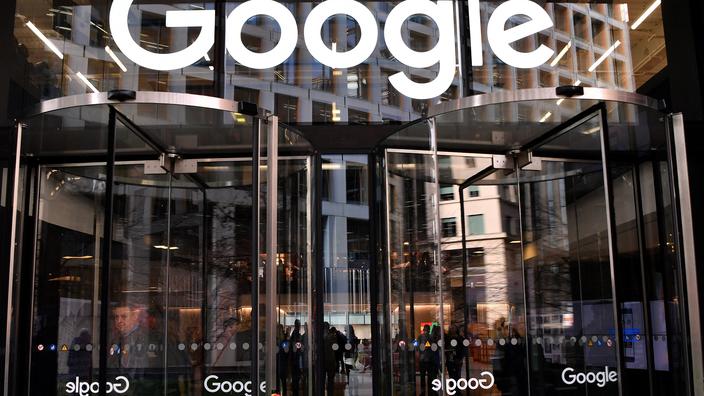Google is cutting down its cards to get out of the conflict that has opposed it to the French press for many months.
And to avoid the wrath of the Competition Authority a second time.
As part of the investigation on the merits of the thorny file on neighboring rights, opened last year, Google offered this Wednesday, December 15 a series of eight commitments, over five years, to the competition police.
Read also Neighboring rights: Google signs an agreement with AFP
Since the entry into force of the French law on neighboring rights in September 2019, which obliges digital platforms to pay press publishers for the publication and sharing of their content, the news media have initiated a bitter struggle with Google.
In France, only Agence France Presse (AFP) reached a specific compensation agreement under neighboring rights with the American giant on November 17.
Negotiations are still underway between Google and the Alliance of the General Information Press (Apig), which brings together four families of the French press (national, regional, departmental daily press and regional weekly press), as well as with the Syndicate of magazine press editors (SEPM).
Intervention of an arbitral tribunal
Google's eight commitments are used to "
perpetuate all the injunctions formulated in recent months by the Competition Authority
", specifies the Mountain View firm in
Figaro
.
The idea being "
to draw a stable and lasting framework for negotiations
" with new press editors.
But also to bring "
additional tools
" for the negotiations which are in progress with the Apig or the SEPM.
Among the most significant proposals, Google suggests that an independent agent, approved by the Authority, ensure the implementation of the commitments made.
The representative may enlist, if necessary, the services of a technical, financial or intellectual property expert.
Another major element: in the event of failure of negotiations with the press editors, the American giant proposes the intervention of an arbitral tribunal, such as the International Chamber of Commerce.
“
In the event that the parties do not reach an agreement, the negotiating parties will have the possibility of seizing an arbitral tribunal, responsible for determining the amount of the remuneration.
Google undertakes to take charge of the fees of the arbitrators and of the arbitration procedure in the first instance
”, it is specified in the text.
Negotiations limited to three months
Google also undertakes to negotiate in
"good faith"
with news agencies and publishers and to make them a compensation proposal within three months. It will communicate to them
"the information provided for in article L.218-4 of the intellectual property code
", in order to allow a transparent assessment of the remuneration offered by Google. The latter also promises to
"take the necessary measures so that the negotiations do not affect the indexing, the classification, or the presentation of protected content".
And that the negotiations around the neighboring right do not affect "
the other economic relations
" that it can have with the publishers.
“
Today, the injunctions of the Competition Authority are temporary.
With our commitments, we are setting solutions for the next few years in
stone, ”explains Google.
The Authority will submit these proposals to a market test, until the end of January 2022. Following this consultation, if the French regulator decides that these commitments are sufficient to meet competition concerns, it will then terminate the proceedings on the merits of the neighboring rights case.
Months of arm wrestling
Since September 2019, negotiations between press editors and platforms have been skating. At the end of 2019, Apig, AFP and SEPM seized the Competition Authority, accusing Google of
“abuse of a dominant position”
. The authority then imposed in April 2020 "
emergency measures
" on Google, an obligation to negotiate remuneration with press editors. The gendarme had since continued the investigation into the merits of the case. A few months later, the editors again seized the Competition Authority, in September 2020, believing that Google was not respecting its obligations.
On July 13, the French regulator finally imposed a fine of 500 million euros on Google, for not having negotiated
"in good faith"
with the press editors on the application of neighboring rights.
In the same decision, the Competition Authority required the Californian giant to resume negotiations and to formulate a
"serious offer"
to the various representatives of the newspaper industry, on pain of a financial penalty.
Google appealed the decision, but settled its fine last week.









